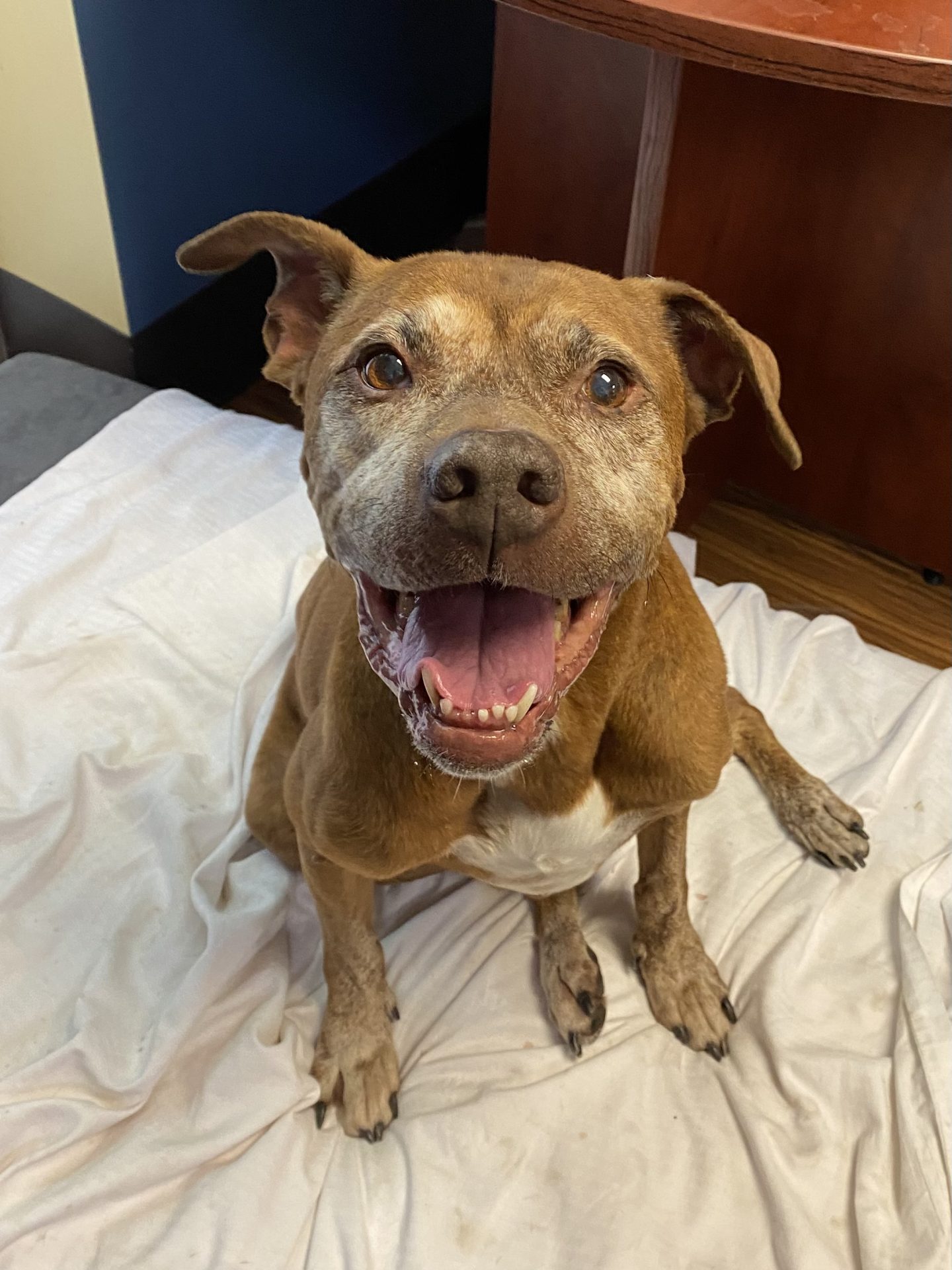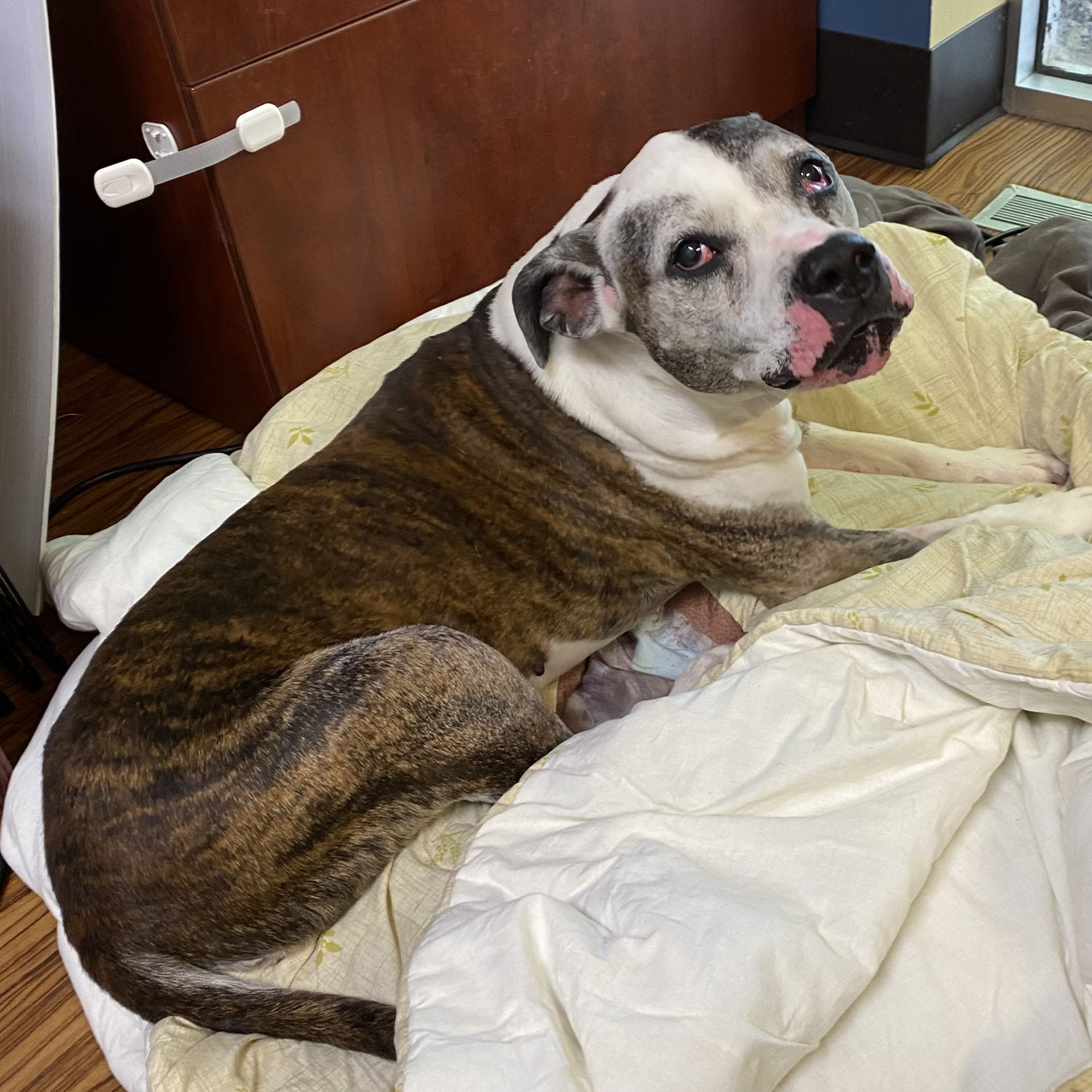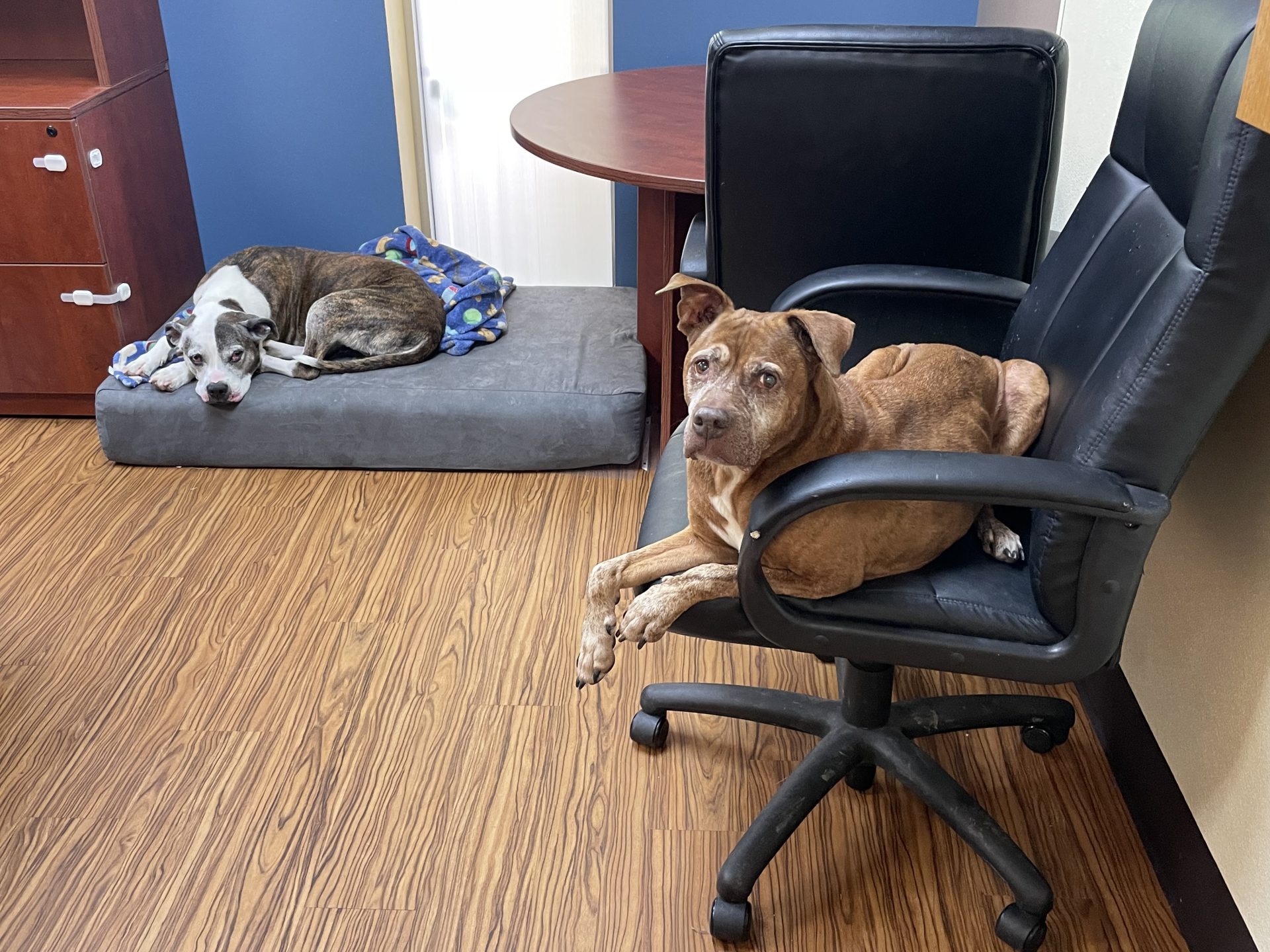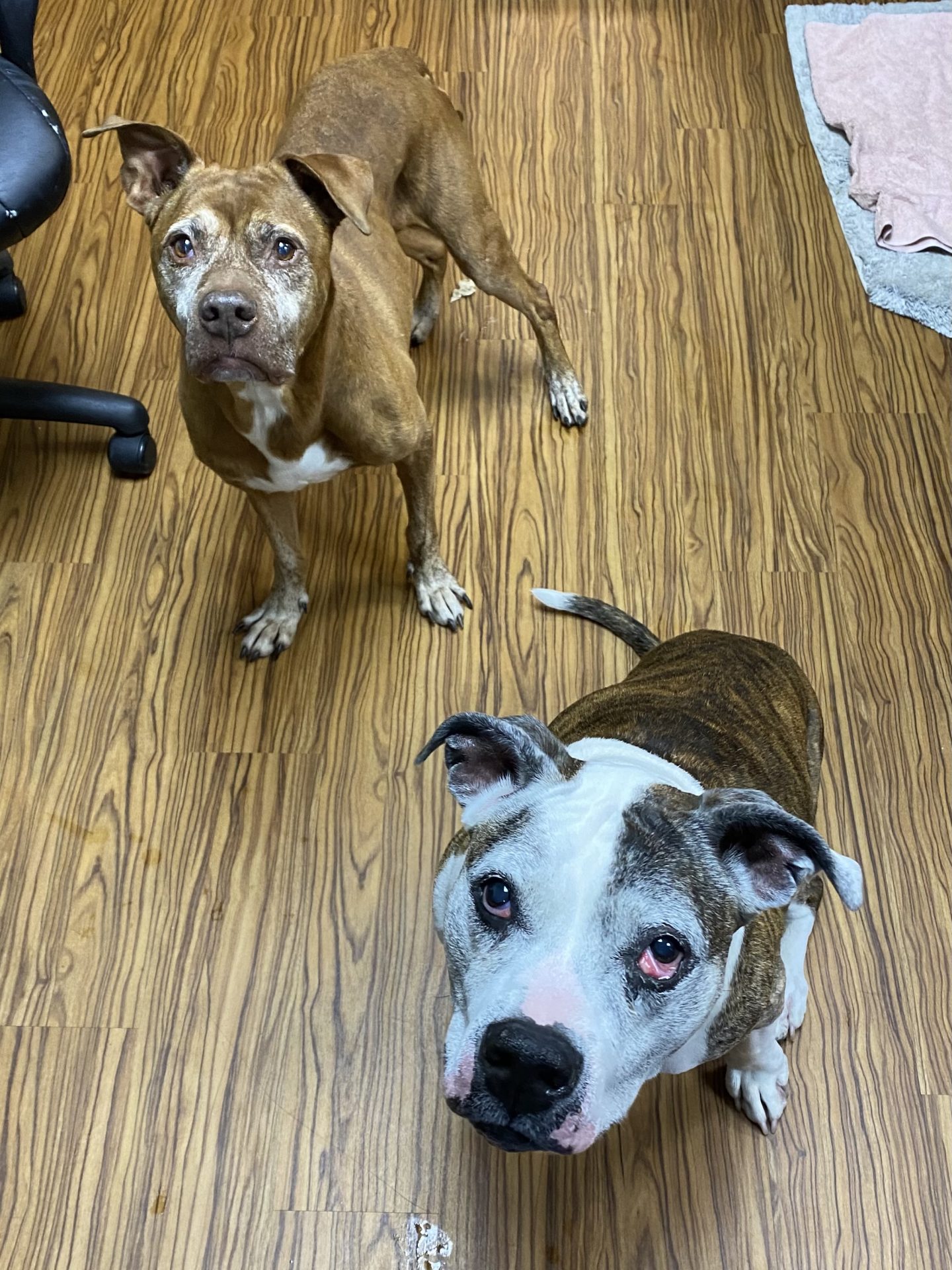Sonny and Cher were found by a police officer at 3:30 am on Fourth of July, wandering and lost at a suburban park. They are a bonded pair and we estimate they are both about 13 years old. Besides some stiffness and harmless bumps and skin tags, they are quite healthy. They are available for adoption at Great Plains SPCA and because they love each so much, they must go home together.




So when is a pet considered a senior? Well, that depends on the species and size of the animal, but generally cats and small dogs are considered seniors at age seven. Larger dog breeds often have shorter life spans and are seniors around six years old. Often owners associate animal age with human age, but there are just as many factors to human age as animal age. The American Veterinary Medical Association created the below chart for human equivalents for older pets.
| Cat Years | Human Years |
|---|---|
| 7 | 54 |
| 10 | 63 |
| 15 | 78 |
| 20 | 97 |
| Dog Years | Human Years (*dog size lbs) |
|---|---|
| 7 | Small – Medium: 44-47 | Large – Very large: 50-56 |
| 10 | Small – Medium: 56-60 | Large – Very large: 66-78 |
| 15 | Small – Medium: 76-83 | Large – Very large: 93-115 |
| 20 | Small – Medium: 96-105 | Large: 120 |
The oldest recorded age of a cat is 34 years. The oldest recorded age of a dog is 29 years.
Knowing what signs to look for in an aging pet and adjusting to meet their needs, can help strengthen the bond with your senior pet and increase their longevity. We care for senior animals of all shapes and sizes at Great Plains SPCA, like Sonny and Cher. Despite their age, they love to go on slow walks and still have puppy-like outbursts of zoomie energy from time to time. This leads us to our first tip.
1. Keep your pet moving!
While it is normal for your senior pet to “slow down,” they should not be experiencing any pain when moving. If you see signs of pain in the animal when moving or shifting bodyweight, you may want to consult your veterinarian. Keeping your pet active can help them maintain a healthy, manageable weight, promotes strength and fitness and keeps them mentally engaged. Senior pets are more likely to experience diminished joint function over time. Always consult your veterinarian before starting your pet on a new diet or supplements.
It’s easy for aging pets to gain weight and keeping them active is key to their longevity. Going on walks, providing enrichment materials, and playing with their favorite toys are all great ways to keep your pet moving. Sonny and Cher engage in a rough and tumble play session with each other every morning.
2. See Your Vet
It’s common for pet owners to take pets to the veterinarian for an annual checkup, but you might consider twice-yearly appointments and even bloodwork as a part of your senior pet’s health care routine. This is especially important as the animal ages and displays common symptoms of aging like arthritis, cognitive decline, obesity, hearing and vision loss, urinary incontinence, kidney disease and cancer. Staying on top of ailments as they arise can save a senior pet from suffering during normal activity.
3. Be patient and make small changes to the animal’s environment
As your senior pet ages, some aspects of their lives become out of their control. Joints may weaken and bodily functions can become uncontrollable. You can adjust their environment to make it easier for your pet to get around and more comfortable for them to live out their golden years. If your pet shows signs of weakening joints, you might consider purchasing an orthopedic or heated bed to help ease arthritis. If you have hard surfaced flooring, you may wish to add rugs or additional bedding to assist in getting up or lying down. Adding ramps for outside access is helpful if you have steps. Elevating your pet’s food and water bowls so the animal does not need to crouch or lower its legs to eat or drink, is also helpful. As the animal’s eyesight declines, night lights can help them get around at night.
Adopting senior pets can be a rewarding, loving experience. We provide the best care for our shelter animals, regardless of age. Sonny and Cher are healthy, housetrained and full of personality. We are committed to finding all of our shelter pets loving homes, especially those in the later stages of life. And by keeping your pet active, taking them for regular vet visits and adjusting to meet the animal’s needs, you can help extend your pet’s life while they enjoy their golden years.
Additional Resources:
5 Tips for Caring for a Senior Dog
Common Health Concerns in Senior Dogs
Senior pet care FAQ

